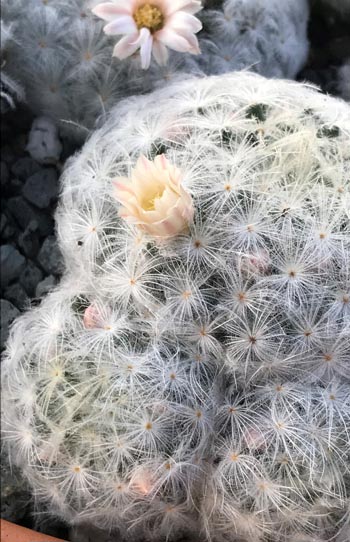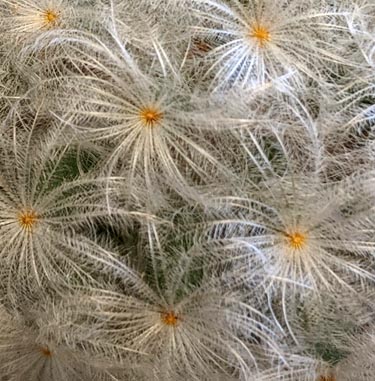Garden Talk
Horticultural Highlight: Feather cactus

In this series, the staff of Duke Gardens highlights plants you’ll find within our 55-acre living collection. This week Doris Duke Center Gardens curator Jason Holmes talks about one of the friendliest cacti in the collection.
Botanical name: Mammillaria plumosa
Common name: Feather cactus
Family name: Cactaceae (Cactus Family)
Plant type: Non-hardy, houseplant
Location in Duke Gardens: Seasonally on display in the Charlotte Brody Discovery Garden
Native range: Coahuila and Nuevo León in northeastern Mexico
USDA Hardiness Zones: 9-10; average minimum of 50 degrees fahrenheit

Cultivation: This plant is best grown in a container, where requirements are more easily met. It needs regular water in summer, but try to keep excess water off the spines. Use a well-drained potting medium to prevent root rot. Do not allow it to stay wet for long periods, and do not water it during the winter months. It grows best in full sun to light shade.
One of the more friendly cacti in the world, the feather cactus is thickly covered in white downy spines that are soft to the touch. It was one of my personal favorites as a child, as I would pet this cactus just as I would a kitten. Mammillaria plumosa grows in rounded clusters 5 inches high by 8 to 16 inches wide.
In the wild it only grows on limestone cliffs in sparse xerophytic scrublands at 2,300-4,500 feet above sea level in northeastern Mexico. Naturally occurring populations are considered threatened, and in 2013 the International Union for Conservation of Nature (IUCN) acknowledged this threat due to humans over-collecting this plant. Learn more at IUCN Red List.
Many plants for sale are grown from seed that is collected from outside of its naturally occurring range, but it pays to do your homework and make sure you are purchasing from a reputable source.
Resource: IUCN Red List
Photos by Jason Holmes.






